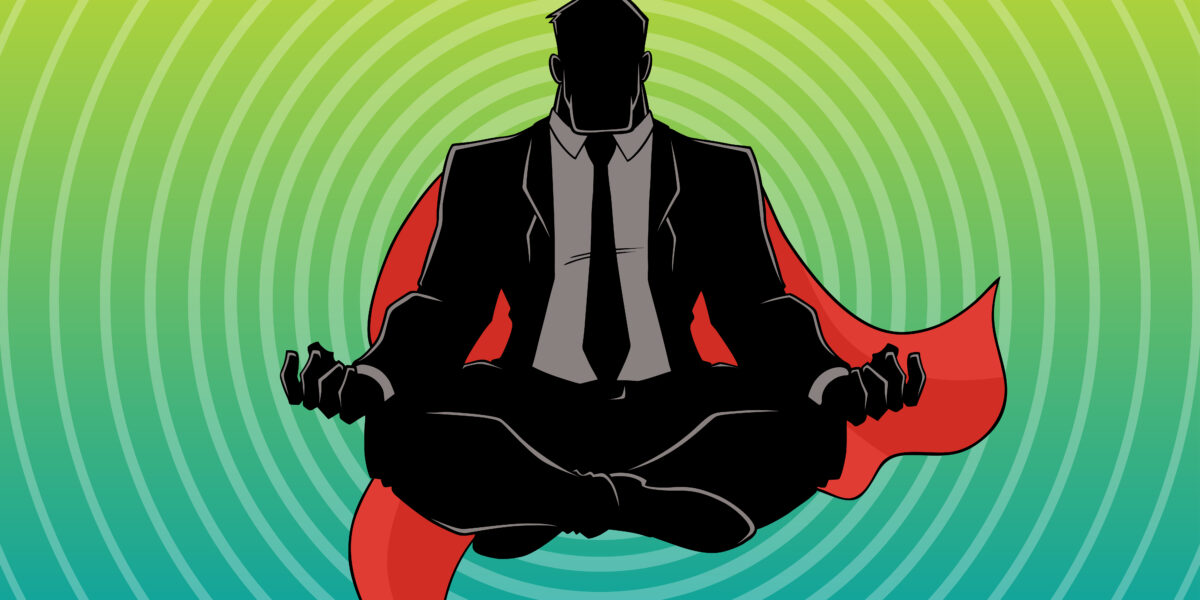Superheroes soar across our digital screens, comic books and every other imaginative form of entertainment. Even though they seem invincible to every kind of pain, the reality is that all of us, superhero or not, can experience depression, anxiety and other behavioral health symptoms.
Men can be reluctant to talk about depression and anxiety, and there is much work to be done to further the conversation about men and behavioral health. Some are known to think or say that behavioral illness and treatment are signs of weakness and can bring shame and embarrassment to themselves or their families. But asking for help isn’t a sign of weakness. Asking for help is a surprising superpower – it’s a sign of strength. It takes strength to admit you need help, and it’s okay to ask for it.
Nearly one in 10 men report daily feelings of anxiety or depression.
Common conditions
Where to get emergency help 24/7
If you or someone you know is talking about suicide, self-harm, a behavioral health crisis, a substance use crisis or any other kind of emotional distress, get help immediately.
- Call or text the Suicide and Crisis Lifeline at 988.
- Call 1-800-273-TALK (1-800-273-8255).
Consider saving these numbers on your phone.
Let’s look at the mental health conditions that can affect any man at any point in their lifetime. Please note that not everyone will experience some or all of these conditions.
- Depression.
- Stress/anxiety.
- Substance abuse disorder (SAD).
- Self-confidence and doubt related to adjustment disorder.
- Paternal post-partum depression (affecting new and established fathers after childbirth).
- Schizophrenia.
- Post-traumatic stress disorder (PTSD).
If you suspect that you have one or more of these conditions, please talk to someone you trust about how you’re feeling, reach out to make an appointment with our team of behavioral health professionals, or if you’re in crisis, immediately contact 911 or contact the National Suicide Prevention Lifeline by calling or texting 988.
Symptoms
“There’s nothing wrong with me, so why should I get help?”
Men can experience depression and other behavioral health symptoms differently than women. Some of the symptoms may not seem related to depression or anxiety. Symptoms like:
- Anger/irritability.
- Increased alcohol and/or substance use (which could be a signal of hidden depression or aggravation).
- Withdrawal from normal activities, social interactions and avoidance of talking about their emotions.
- Physical symptoms like headaches, pain, change in appetite, weight gain/loss, erectile dysfunction and change in sex drive (higher/lower than normal).
Stay healthy, my friend
If you think you are struggling with a behavioral health condition, you’re probably wondering how to help yourself feel better and stay healthy. The first thing you can do is to talk with someone — a close family member, friend, clergy member or medical professional.
Help is here.
In Delaware, visit Behavioral Health Outpatient Services or call 302-320-2100.
In Maryland, visit Behavioral Health Outpatient Services or call 410-620-0008.
In Pennsylvania, visit Behavioral Health at Concord Health Center or call 302-320-2100.
It’s important to take care of your health and wellness. This may feel tough at times, especially when you’re not feeling your best and it’s difficult to manage your emotions and behaviors. Here are some things you can do to help keep your mind healthy.
- Practice healthy coping skills, like meditation or deep breathing.
- Take time for yourself to recharge. You could binge stand-up comedy on TV, play video games, go for a walk with your dog or spend time with friends.
- Get enough sleep, eat a variety of healthy foods and get regular exercise.
- Find a counselor for yourself. Counseling can give you tools to help manage stress. You also can learn how to build healthy boundaries. Ask your doctor for a referral or contact us at 302-320-2100 to make an appointment. Our Outpatient Behavioral Health team includes psychologists, social workers, psychiatric nurses, behavioral health counselors and board-certified psychiatrists. Whatever you need, we’ve got you. We’ll see you in the office or virtually online.
- Take medications (if prescribed) along with counseling. Medicines may help relieve symptoms so you can get more benefit from counseling. And when you feel better, you may be able to take better care of yourself.
Exercise
Exercise is about more than physical health. It can also help boost your emotional and behavioral health. Being active when you feel depressed or anxious can be hard, but it can help you feel better. If you have other health issues like coronary artery disease, talk to your doctor before you start a new activity. If you don’t have a primary care provider, don’t delay. Contact us to schedule an appointment today.
Check out this playlist of exercises, designed by our experts at ChristianaCare, to help you stay healthy and keep your mind balanced. Even take advantage of a commercial break from binge-watching your favorite show with our: Commercial Break Workout.
It’s OK to not be OK
Let’s get real. Men may have a hard time talking about emotions. We get it. But there is power in opening up. Philadelphia Eagles right tackle Lane Johnson has spoken publicly about his struggles with depression and how he’s managing his symptoms. Remember – you are not alone.
Emergency help in crisis
Check out this “5-minute Guide to Men’s Mental Health” infographic for some quick facts about men, mental health, and mental illnesses from Mental Health America.
Six million males are affected by depression in the United States every year. Nearly 80% of people who die by suicide are males, at a rate four times higher than females. Compared to females, men are less likely to seek help for problems related to their behavioral health.
People who consider suicide often feel hopeless, helpless and worthless. They may think that suicide will solve their problems and end their pain. Any suicide attempt or talk of suicide should be taken seriously. A person who has made a plan to harm themselves or someone else needs immediate help.
Superheroes, unite!
You are not alone. ChristianaCare’s Behavioral Health team is here to offer you compassionate and high-quality care for mental health and substance use disorder. Everyone may need support from time to time, even superheroes. and our experts are here to help. Schedule an appointment with us today.
In Delaware, visit Behavioral Health Outpatient Services or call 302-320-2100. In Maryland, visit Behavioral Health Outpatient Services or call 410-620-0008. In Pennsylvania, visit Behavioral Health at Concord Health Center or call 302-320-2100.



